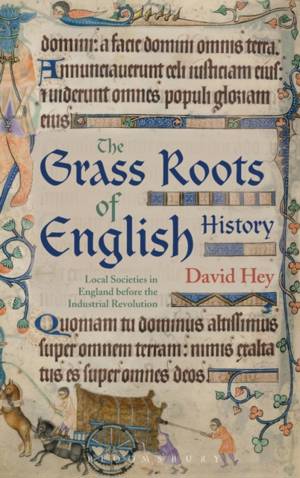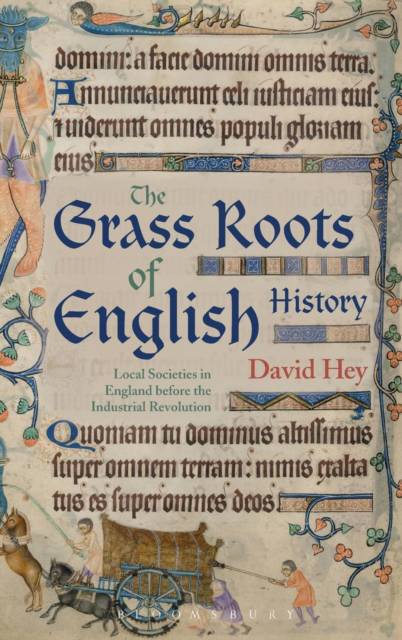
- Afhalen na 1 uur in een winkel met voorraad
- Gratis thuislevering in België vanaf € 30
- Ruim aanbod met 7 miljoen producten
- Afhalen na 1 uur in een winkel met voorraad
- Gratis thuislevering in België vanaf € 30
- Ruim aanbod met 7 miljoen producten
Zoeken
The Grass Roots of English History
Local Societies in England Before the Industrial Revolution
David Hey
Hardcover | Engels
€ 296,95
+ 593 punten
Uitvoering
Omschrijving
In medieval and early modern Britain, people would refer to their local district as their 'country', a term now largely forgotten but still used up until the First World War. Core groups of families that remained rooted in these 'countries', often bearing distinctive surnames still in use today, shaped local culture and passed on their traditions. In The Grass Roots of English History, David Hey examines the differing nature of the various local societies that were found throughout England in these periods.
The book provides an update on the progress that has been made in recent years in our understanding of the history of ordinary people living in different types of local societies throughout England, and demonstrates the value of studying the varied landscapes of England, from towns to villages, farmsteads, fields and woods to highways and lanes, and historic buildings from cathedrals to cottages. With its broad coverage from the medieval period up to the Industrial Revolution, the book shows how England's socio-economic landscape had changed over time, employing evidence provided by archaeology, architecture, botany, cultural studies, linguistics and historical demography. The Grass Roots of English History provides an up-to-date account of the present state of knowledge about ordinary people in local societies throughout England written by an authority in the field, and as such will be of great value to all scholars of local and family history.Specificaties
Betrokkenen
- Auteur(s):
- Uitgeverij:
Inhoud
- Aantal bladzijden:
- 240
- Taal:
- Engels
Eigenschappen
- Productcode (EAN):
- 9781474262514
- Verschijningsdatum:
- 5/05/2016
- Uitvoering:
- Hardcover
- Formaat:
- Genaaid
- Afmetingen:
- 156 mm x 234 mm
- Gewicht:
- 512 g

Alleen bij Standaard Boekhandel
+ 593 punten op je klantenkaart van Standaard Boekhandel
Beoordelingen
We publiceren alleen reviews die voldoen aan de voorwaarden voor reviews. Bekijk onze voorwaarden voor reviews.







